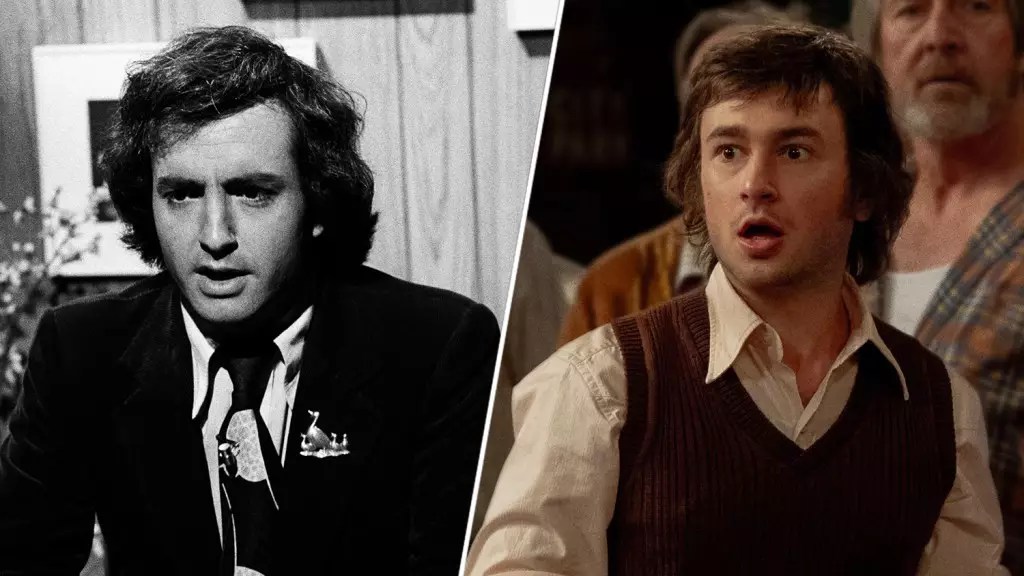In the world of film, capturing the essence of a real person can be both a challenge and a thrilling endeavor. Gabriel LaBelle, the protagonist of the upcoming film “Saturday Night,” experienced this firsthand. His portrayal of Lorne Michaels, the creative force behind the iconic “Saturday Night Live” (SNL), provides a unique perspective on the show’s inception. Recently, LaBelle reflected on his visit to 30 Rockefeller Plaza, a location historically intertwined with the spirit of American comedy.
During this visit, he had the extraordinary opportunity to attend a live SNL taping, a moment that would not only deepen his understanding of Michaels but also enrich his performance. “Our first two days of shooting were in New York,” LaBelle shared in an interview, underscoring the importance of authenticity in his role. Engaging directly with the environment that birthed this legendary program allowed LaBelle to immerse himself in the energy and creativity that define SNL.
Meeting Lorne Michaels was an essential part of LaBelle’s preparation. As he recalled, “Lorne was super cool and invited us to watch the Josh Brolin episode live.” This encounter is not just about obtaining behind-the-scenes knowledge; it’s a chance to connect with a living legend. The nuances of Michaels’ character—his humor, his vision, and his leadership—were traits that LaBelle aimed to emulate, thereby giving audiences a realistic portrayal of how SNL evolved during its foundational years.
In discussing his experience post-show, LaBelle highlighted a brief conversation with Michaels. Although the exchange was short, it spoke volumes about the director-actor dynamic. Such interactions allow actors to draw on the subtleties of the person’s personality they are portraying, enriching their craft. Contributing to this gathering were other notable figures from the production, including director Jason Reitman and actress Scarlett Johansson, fostering an atmosphere of creativity and collaboration.
“Saturday Night,” initially titled “SNL 1975,” dramatizes a crucial moment in television history that would reshape comedy forever. Set on October 11, 1975, the film covers the intense moments leading to the inaugural broadcast of SNL. By focusing on the fledgling comedians and writers, the film not only pays homage to their struggles but also celebrates the sheer audacity of launching a show that would challenge the norms of television comedy.
LaBelle’s portrayal emerges amidst a star-studded ensemble, which includes Rachel Sennott and Dylan O’Brien, each embodying iconic figures from the SNL legacy. In cultivating these characters, the film aims to take audiences behind the curtain, illustrating not just the magic seen by viewers at home but also the pressures and excitement brewing backstage.
As the premiere date looms on October 11, fans and critics alike are eager to discern what Lorne Michaels might think of LaBelle’s depiction. Reitman indicated that Michaels had yet to see the film, which adds an air of mystery regarding his reaction. “I don’t know if he’ll ever tell me his reaction,” Reitman mused, suggesting the elusive nature of Michaels may extend to his feedback on this cinematic representation of his life.
The success of “Saturday Night” hinges not only on the performances but also on the authentic conveyance of a story that holds significant cultural weight. This portrayal will undoubtedly prompt reflection on the current landscape of comedy and the influences of past icons—an aspect that LaBelle seems well-prepared to tackle through his role.
In the quest to depict real characters, actors like Gabriel LaBelle transcend mere imitation; they breathe life into history. By visiting pivotal sites, engaging with real-life figures, and developing a deep understanding of the world surrounding their characters, they craft performances that resonate with audiences. As “Saturday Night” prepares for its debut, it not only serves to honor the legacy of SNL but also highlights the intricate process of transforming one’s own viewpoint into that of someone else’s, ensuring that the spirit of comedy continues to thrive.


Leave a Reply